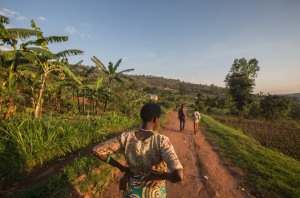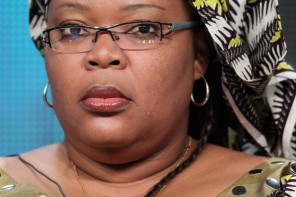It almost seems like you can’t hold elections without a few grenade explosions in this part of the world.
Grenade explosions made international news in late winter and early spring in Rwanda. They injured more people than they killed, and based on my exposure to grenades, which is action movies, the numbers of both seemed to be thankfully low. The Rwandan government seemed to suspect some high-level military officers, but the chief suspect fled the country… and then there was another grenade explosion. Because you can’t keep writing the same story, that one didn’t make the international news (and some of us in Kigali even wondered whether it had actually happened). Meanwhile, theories abound, privately of course, about who’s really behind the grenades and why.
It’s been quiet, grenade-wise, in Kigali lately, but this weekend Bujumbura decided to get in on the act. The presidential elections here are looming, and controversial, and it’s almost as if everyone in the capital has just been waiting for some sort of violence. It came the night the presidential campaign formally opened; the earliest reports were two, then three, grenades thrown from the backs of motorcycles. By the morning, I had heard five grenades from three different and informed sources (though AFP put it at four).
Here, too, no one is sure who’s behind it. Some say it’s the opposition, which would be kind of stupid. The government is waiting for a reason to stick it to them; why give them one so early on? Others say it’s the CNDD-FDD, the president’s party that “won” or “stole,” depending on your perspective, 60+ percent of the vote in May’s communal elections. Why would they do it? To blame the opposition. Which would also be, many think, stupid.
I haven’t heard them try that yet. But like most things in Burundi, there’s probably a buried truth here that no one will ever find out.
When I don’t understand what’s going on, I try to do a close reading of the local landscape. And when the grenades were thrown in Buj, nobody blinked. The dance clubs rocked on until the early morning. About a hundred people gathered around an outdoor TV and watched the World Cup. Most of us had another beer. Not that it’s not serious — but this is Bujumbura, where you gunfire lulled people to sleep for the better part of 15 years. So let’s not get hysterical now, eh?




Glad everyone in Bujumbura’s bearing up well! Thought that if this is going to be a regular occurance you might be interested to know what to do if someone throws a grenade at you, which, by coincidence, I’ve just been reading about in my NGO’s safety handbook. So: turn so you have your back to the grenade, take one step, and drop to the ground. This is because a) the range of a grenade is about 30m so it’s unlikely you’d get away before it went off, and b) what kills you is the blast, not the shrapnel, so it’s best to minimise the surface area exposed to the blast – plus the shrapnel blows in a hemisphere, so lying flat is still a good place to be.
Also: my bet is on the government. According to the rumour mill they’ve been paying up youth gangs do destabilise the situaiton and scare people into voting for them since last summer if not before. And just because it’s a bit daft doesn’t make it any less likely that they’d do it.